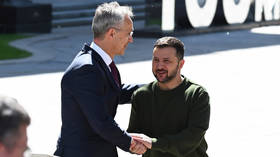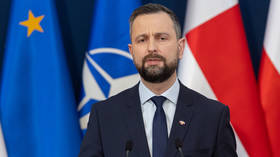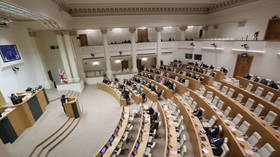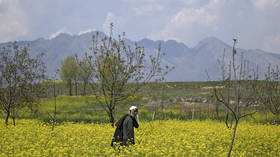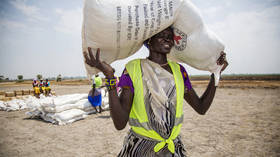G7 scraps review of Russian oil price cap – Reuters
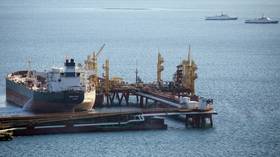
The Group of Seven (G7) leading economies and its allies have stopped carrying out regular reviews of the price cap on Russian oil, even though it is now trading well above the ceiling, Reuters reported on Wednesday citing sources familiar with the matter.
The price limit on Russian seaborne crude of $60 per barrel was introduced by the EU, G7 countries, and Australia on December 5. It bans Western firms from providing insurance and other services to shipments of Russian crude, unless the cargo is purchased at or below the set price.
The EU initially agreed to review the price cap every two months and make adjustments to the scheme, while the G7 said it would review “as appropriate” including “implementation and adherence.”
Moscow has responded to the restrictions by outlawing the sale of oil and refined products to buyers that comply with the cap, and redirected most shipments away from the West.
India and China emerged as key buyers of Russian crude, while oil exporters have found ways to sell the commodity using domestic or non-Western ships and insurance services, making it difficult for the West to enforce the price cap mechanism.
In August, the price of Russia's benchmark Urals crude averaged over $74 per barrel, breaking the price cap of $60 for the first time. Industry sources told Reuters that the G7 has not reviewed the cap since March, and has no immediate plans to do so despite the rise in crude prices.
“There were some talks in June or July to do a review, or at least talk about it, but it never formally happened,” a diplomatic source told the news outlet.
Recent findings by Bloomberg revealed that exports of Russian oil using Western-insured tankers were continuing, even though the price of Urals had jumped beyond $60 per barrel. About 40% of vessels carrying oil from Russia's Baltic and Black Sea ports were either owned or insured by companies based in countries that signed up to the price ceiling.
On Tuesday, prices of the benchmark Brent blend jumped above $90 per barrel for the first time in 2023 after Saudi Arabia and Russia said they would extend their voluntary production and export cuts until the end of the year. Brent retreated slightly on Wednesday to just under $90 a barrel.
For more stories on economy & finance visit RT's business section





